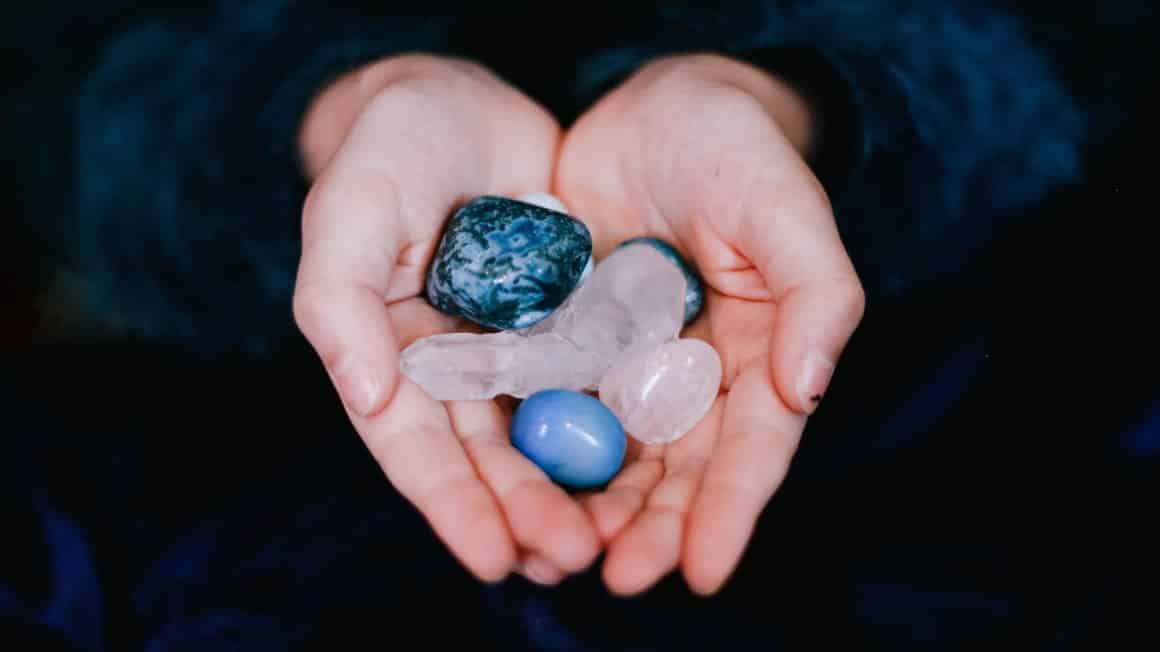Oh dear.
My post yesterday detailed the lack of response from Birmingham’s science museum, Thinktank, to my complaint regarding rampant pseudoscience in several of their exhibits. One was their ascribing woo health and astrological claims to rocks they were selling to kids, the other was a GMO exhibit that was, well, devoid of any science whatosever.
I put the post up after close of business Friday – and deliberately so because that made it well after the museum’s self-imposed timescale for responding to complaints. I thought it right to allow them the time they ask to respond before resorting to the Interwebs. Spookily enough, I got a response Saturday lunchtime less than 24hrs after posting and informing them via Twitter.
Before getting into the detail, this is a science museum. In my humble opinion that raises the bar slightly in terms of how they present – errrrrrr – science. I make no further comment and merely append their response to the original complaint you can see here plus below the museum’s response you can see what I’ve sent them in reply.
You couldn’t make this shit up. Really.
Thinktank’s Response to RectoFossa’s Complaint:
“Thank you very much for your email regarding your recent visit to Thinktank.
I have spoken to both the curatorial and retail team who have provided responses to the areas that you have addressed and I have outlined the reasons below.
The Power of the Stones vending machine does indeed state that minerals are associated with various health and emotional benefits, but doesn’t specifically state that it is factual. However, we understand your point and especially as the majority of children will be buying these items, they may believe the claims. As such, our Central Buyer is pleased you’ve brought it to her attention and will be speaking to the suppliers and investigating the signage that goes alongside the products, as well as considering removing the products from the shop altogether.
Regarding the GM exhibit, we have spoken to the curatorial team and our Natural Science Curator has explained that the exhibition is balanced as it highlights people’s opinions on GM technology only, and we consider it to be representative of people’s opinions, which is all it seeks to do. However, I would also like to mention, as you’ve also pointed out, the content is outdated and limited, and we are currently proposing to have it replaced with something more current and up to date which we will be looking into over the coming months.
Once again, thank you for taking the time to provided feedback and please know that we take all customer comments very seriously and try to act on them where possible. Please feel free to get in touch if you have anymore questions or would like to speak to me.”
Oh dear. For a start it wasn’t ‘feedback’, it was a formal and detailed complaint, but hey-ho. Here’s the response sent by RectoFossa’s alter ego:
“Regarding the Power of the Stones I find the Museum’s position rather unsatisfactory to say the least. You accept that your promotional materials state that “minerals are associated with various health and emotional benefits” but defend those claims by saying your advertisement “doesn’t specifically state [the claims are] factual”. This rather startling statement is then compounded by the admission that the majority of people buying these stones are children who are likely to be misled by the statements made at point of sale.
Science (or lack of it) aside, I can’t help but wonder what the ASA or Trading Standards would make of your position. Hide behind your supplier if you wish, but the museum is choosing to continue to sell items based on claims that – when drawn to its attention – it acknowledges are false. You say the museum understands my point but from your response I suspect it doesn’t. I have no issue with the museum using rocks as a revenue source but why not just say “here’s some really pretty rocks and here’s the geology behind them” rather than knowingly misleading children? The science is far more interesting, trust me.
I must admit I was expecting a rather sheepish “oops, we didn’t spot the nonsense pseudoscience claims, that’s a bit embarrassing for a science museum” response. But the museum’s position seems to be that because it doesn’t explicitly warrant the claims made are true, it is therefore acceptable to spin fairy tales with the direct aim of misleading children in order to make them part with their pocket money. The museum’s strategy on advertising its merchandise is an interesting interpretation of the law, to say the least. But I’m no lawyer, I’m a simple scientist.
On the GMO ‘exhibit’ your explanation of the museum’s position seems to be that false balance is acceptable because the public is confused about the science behind an issue, and representing this confusion is “all [the exhibit] seeks to do”. A third of the public believe in faith healing, 37% in astrology, 29% in homeopathy, 28% in UFOs and a quarter in reincarnation (and wouldn’t that be a fascinating Venn diagram had those data been from a single survey). While I’m not suggesting debunking Father Christmas or the Tooth Fairy would be suitable exhibits in a science museum aimed at children, surely you should be attempting to inform the debate and leave ill-informed reportage to the Daily Mail and its ilk?
Based on the museum’s response I realise the following assertions may come as some considerable surprise, but science is not a belief system. It is not a worldview. It is about observation, measurement and using consistent logic to evaluate observed data. The only context where the public’s perception of GMOs (or indeed any other scientific issue) is relevant is if the public’s view is at odds with the established scientific consensus. When that is the case (as I am happy to agree it is with GMOs, for example), surely it is the role of a science museum such as Thinktank to try to inform the debate by sticking to the science, and presenting it in such a way that might help the laity understand the issues at hand?
One point on which I think we can agree is the claim on the museum’s website “Thinktank redefines the concept of a science museum”. I couldn’t have put it better myself.”
I will keep you informed…





Wow. Sad that a “science museum” regards science so lightly.